What You Need To Know About Melatonin – The Top 4 Amazing Health Benefits of Melatonin and 7 Simple Ways to Boost Your Level Naturally
The Top Four Health Benefits of Melatonin and Seven Ways to Boost Your Level Naturally
Overview
Melatonin is a neurohormone produced by the pineal gland, which is a small gland located deep in the center of your brain. It helps regulate the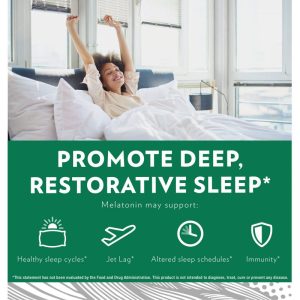
Often called ‘the sleep hormone,’ melatonin is thought to play a huge role in sleep initiation and maintenance. Although its presence is not essential for sleep, healthy melatonin levels help you rest better at night and facilitate complete rejuvenation of the body and mind.
A synthetic version of pineal melatonin is widely available in the form of pills, capsules, gummies, and chewable tablets. It is commonly taken as a health supplement to promote sleep quality, reduce jet lag symptoms, fight chronic pain, and support cancer recovery.
Melatonin is one of the least understood hormones, but evidence suggests it might have a significant role in almost every physiological function, from appetite and digestion to immune response and blood sugar control.
Let’s dig deeper and find out all about melatonin and its impact on health.
Functions of melatonin
The primary function of melatonin is to maintain the circadian rhythm, which is an internal 24-hour biological clock that regulates various physiological, psychological, and behavioral responses based on available sunlight.
The pineal gland is light-sensitive, which means it can sense the environmental light conditions and respond accordingly by releasing appropriate amounts of melatonin. It secretes the highest amount of melatonin during the nighttime. High melatonin helps slow down digestion, heart rate, and other metabolic processes and suppresses other hormones (like insulin), preparing the way for deep restoration. When there is sufficient sunlight during the daytime, the pineal gland lowers melatonin production, allowing you to stay alert and focused.
Because the primary function of the pineal gland is to let in light and darkness, it is also called “the third eye” or “seat of the soul” and is thought to have a connection with spirituality and higher awareness. Neuroscientists all over the world are trying to understand the full impact of pineal melatonin on overall health.
How melatonin influences health
Evidence suggests that pineal melatonin has direct or indirect control over almost every aspect of life, including digestion, metabolism, appetite levels, sleep patterns, mood, energy levels, menstrual cycles, fertility, wound healing, immune response, heart rate, and blood pressure. It even helps activate anti-aging enzymes and controls inflammation.
Healthy melatonin secretion also protects the brain against neurological conditions like Alzheimer’s and Parkinson’s disease. Researchers have found that people who have had their pineal gland surgically removed experience accelerated aging.
Some medical conditions, poor diet, and unhealthy lifestyle practices can throw the natural melatonin rhythm out of balance, affecting sleep quality and triggering several lifestyle problems.
Melatonin deficiency
Melatonin deficiency may be caused by various factors, including chronic stress, aging (your melatonin levels gradually decrease after the age of 40), mental health issues, dementia, overuse of medications, shift work, and climatic conditions.
Poor sleep hygiene practices like eating heavy meals close to bedtime, staying up late at night, inconsistent bedtime schedule, exposure to bright light sources or electronic devices, or excessive caffeine consumption can also interfere with nighttime melatonin secretion.
When your body is producing too little melatonin, you may experience issues like trouble falling asleep or staying asleep (insomnia), fragmented sleep, or excessive dreaming. Other symptoms of melatonin deficiency include:
- Daytime fatigue or sleepiness
- Irritability and low mood
- Difficulty concentrating or remembering
- Weakened immune response against tumors and pathogens
- Irregular sleep-wake rhythm (taking several naps throughout the day)
- Advanced or delayed sleep cycle (when you sleep and wake up several hours earlier or later than what is considered normal)
If left untreated for a long time, an abnormal body clock can contribute to the development of many serious metabolic diseases, including type-2 diabetes, hypertension, obesity, and cancer.
Excess melatonin
Excess melatonin production is somewhat rare and is most commonly caused by climatic conditions (long winters and low sunlight). Due to low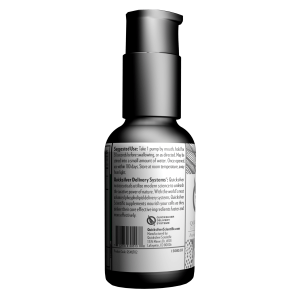
Symptoms of high melatonin production include:
- Lethargy
- Low body temperature
- Excessive sleepiness
- Headaches
- Food cravings and weight gain
- Foggy mind
- Hopelessness
- Heavy-heartedness
- Suicidal thoughts
Taking melatonin as a supplement
Melatonin supplements are either synthetically produced or extracted from animals. They are most commonly used as a natural sleep remedy but can also help improve certain health conditions.
1. Sleep aid
Melatonin supplements can help correct an irregular sleep-wake cycle, making it easier to doze off at night. Research shows it can improve sleep quality in cases of occasional insomnia, temporary routine disruption, delayed sleep-wake phase, or jet lag symptoms. It can be particularly beneficial for people who have recently traveled across time zones or having difficulty falling asleep due to shift work.
In a 2013 placebo-controlled trial, taking melatonin before bedtime increased sleep duration and reduced sleep onset time. It has also been shown to help establish healthy sleep patterns in children.
2. Cancer prevention and treatment
Melatonin has been studied for its potential anti-cancer properties. Although more research is needed, limited evidence suggests that healthy melatonin function may inhibit the growth of cancer cells and promote apoptosis.
A 2017 study suggested that melatonin may help mitigate cancer at all the initiation, progression, and metastasis phases due to its multiple mechanisms of action. Researchers found that using melatonin as an adjunctive therapy helped reduce acute and long-term drug toxicity and improved the efficacy of anti-cancer therapies, making the same therapies more effective against tumors that were previously drug-resistant.
Melatonin also inhibited molecular processes associated with metastasis and prevented cancer cells from spreading to secondary sites.
3. Immune support
Melatonin is a powerful antioxidant that helps fight free radical damage and reduces systemic inflammation in the body, protecting organs from age-related and environmental damage.
Research shows that melatonin enhances the activity of immune cells, stimulates immune responses, and reduces both acute and chronic inflammation.
4. Cognitive health
Studies have shown that melatonin supplements can improve verbal memory, learning, and cognitive function under stress. Improved sleep quality further helps facilitate the nervous system and protects the brain from amyloid-beta plaques.
In one study, researchers suggested that the anti-amyloid and anti-inflammatory effects of melatonin may help slow down the cognitive decline associated with Alzheimer’s disease.
Potential risks and side effects of taking melatonin
Short-term and occasional use of melatonin supplements is generally considered safe for most people. If you are pregnant or trying to conceive, it may be best to avoid taking oral melatonin. People with high blood pressure and type-2 diabetes should seek medical advice before using melatonin supplements, as it may interfere with other drugs.
High doses of melatonin may trigger unpleasant side effects like dizziness, headaches, diarrhea, abdominal pain, joint pain, anxiety, or high blood pressure.
Natural ways to boost melatonin levels
While supplements can help in the short term, consider making some lifestyle adjustments to bring your routine in alignment with natural rhythms. Here are some tips to help maintain healthy melatonin levels.
- Get morning sunshine: Waking up late or not getting enough sunlight during the morning time can confuse the internal clock and disrupt melatonin function. Sunlight also provides vitamin D, which is essential for making and synthesizing the pineal hormone. Experts suggest getting 5-15 minutes of morning sunlight three to four times a week for healthy body clock maintenance.
- Eat melatonin-rich foods: Melatonin is naturally found in berries, cherries, almonds, fatty fish like sardines, eggs, milk, sweet potatoes, hazelnuts, cardamom, mushrooms, and pumpkin seeds.
- Practice good sleep hygiene: Try establishing a consistent sleep schedule and create a bedtime routine for relaxation. Eat a light dinner at least 3-4 hours before bedtime.
- Limit exposure to artificial light: Avoid exposure to bright lights, particularly blue light, before bedtime. This includes electronic devices such as smartphones and tablets, as well as bright overhead lights and lamps. Consider switching to aromatherapy candles or low-wattage bulbs to prevent melatonin suppression.
- Get regular exercise: Regular exercise has been shown to help maintain healthy melatonin rhythms. It also improves mood and increases deep sleep duration. Aim for at least 30 minutes of mild to moderate exercises (like brisk walking) each day.
- Manage stress: Chronic stress can disrupt the natural sleep-wake cycle and lead to melatonin deficiency. Practice stress-reduction techniques, such as deep breathing, meditation, yoga, or aromatherapy, to manage stress levels and improve sleep quality.
- Limit caffeine intake: Research suggests that high caffeine consumption can cause long-term damage to the pineal gland. Even in the short term, caffeine is known to suppress melatonin secretion and delay the sleep cycle.
Final thoughts
Melatonin is an important hormone that helps maintain a healthy sleep cycle and body clock. It is directly or indirectly involved in various physical and mental functions, including sleep, stress response, relaxation, food-to-energy conversion, mood management, regulation of menstrual cycles, sexual and reproductive functions, immune responses, and activation of anti-inflammatory enzymes.
Melatonin deficiency can disturb sleep patterns and increase the risk of metabolic disorders. Fortunately, there are various natural ways that can help restore balance. If you want to take melatonin supplements, consider speaking to a healthcare provider for appropriate doses and possible drug interactions. If you are looking for a good melatonin supplement to take, I recommend the Liposomal Melatonin from QuickSilver Scientific.
For natural and healing remedies, products, and supplements that can help you live your most optimal healthy life, visit our store here!
To Your Health!
References
https://www.ncbi.nlm.nih.gov/books/NBK550972/
https://www.ncbi.nlm.nih.gov/pmc/articles/PMC5412427/
https://www.nccih.nih.gov/health/melatonin-what-you-need-to-know
https://www.ncbi.nlm.nih.gov/pmc/articles/PMC3742260/
https://www.ncbi.nlm.nih.gov/pmc/articles/PMC3001215/
https://www.ncbi.nlm.nih.gov/pmc/articles/PMC1325257/
https://link.springer.com/article/10.1007/s001090050297
https://pubmed.ncbi.nlm.nih.gov/9406031/
https://www.ncbi.nlm.nih.gov/pmc/articles/PMC2290997/
https://www.ncbi.nlm.nih.gov/pmc/articles/PMC4273450/


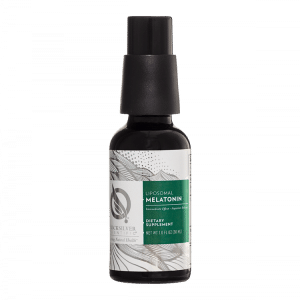
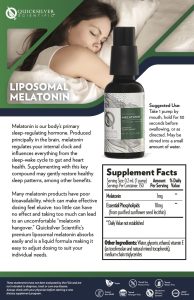








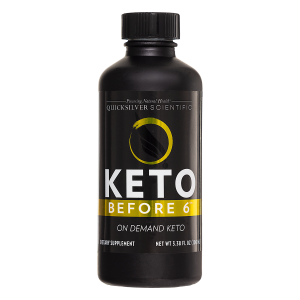

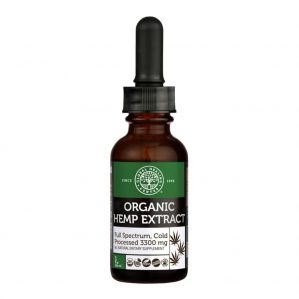
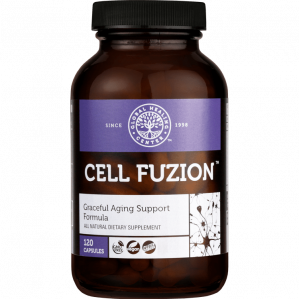
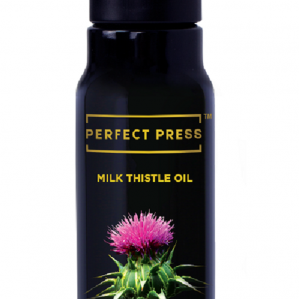











0 Comment